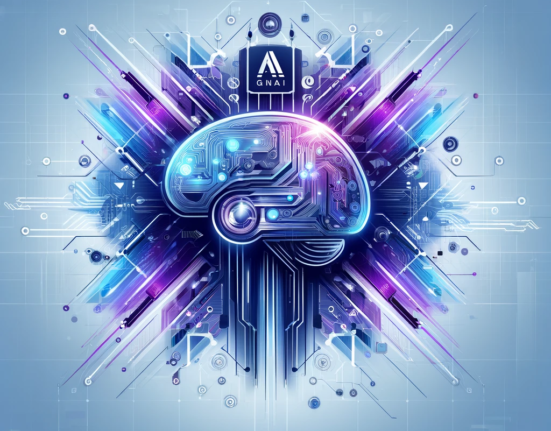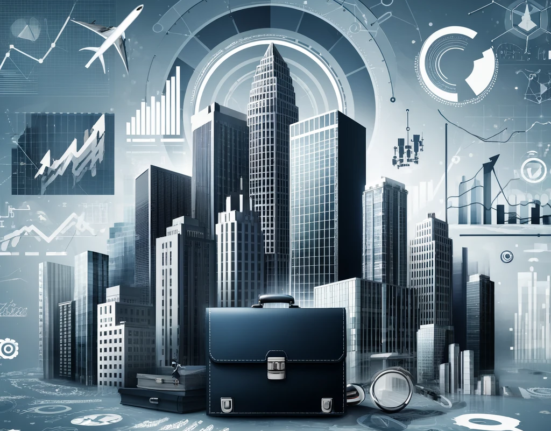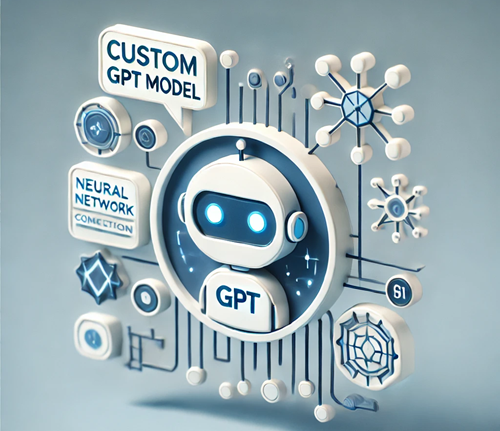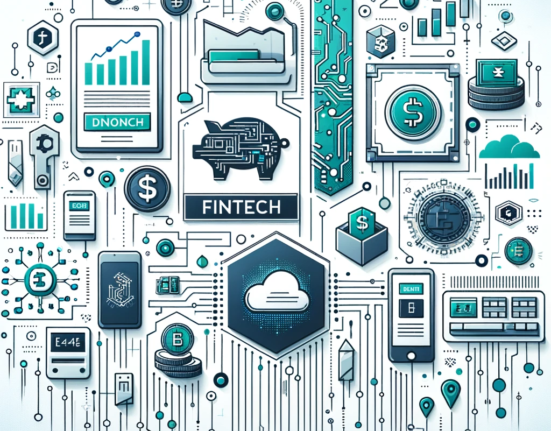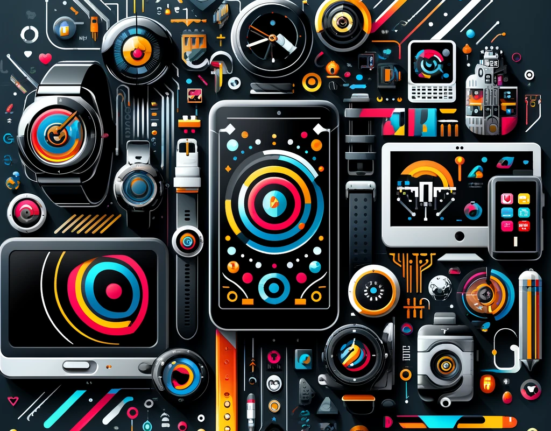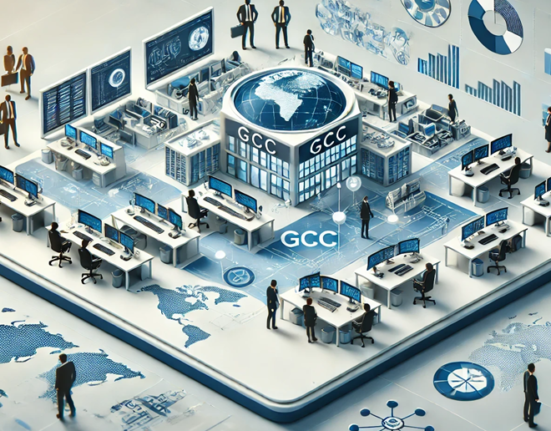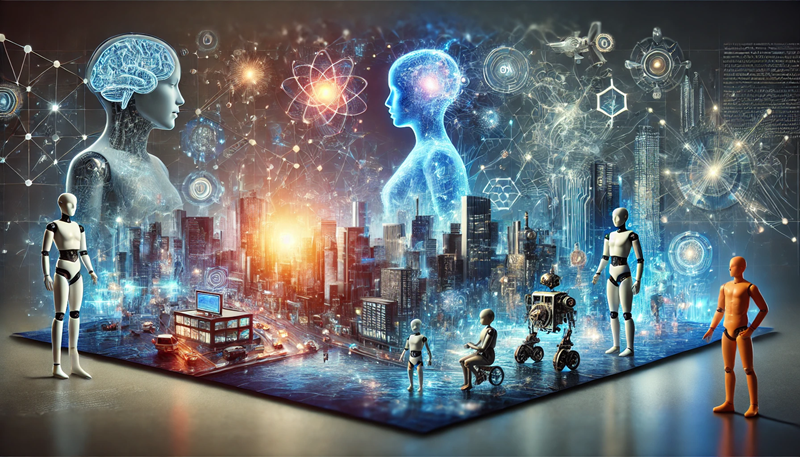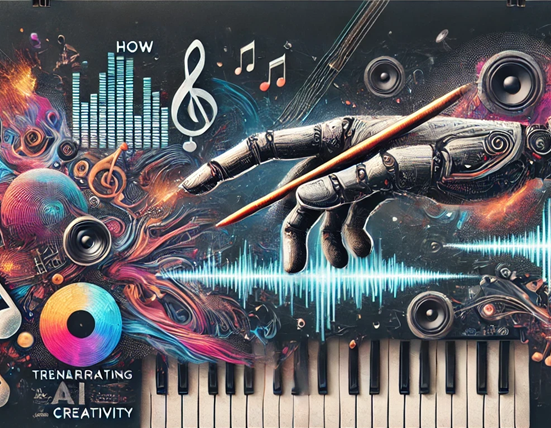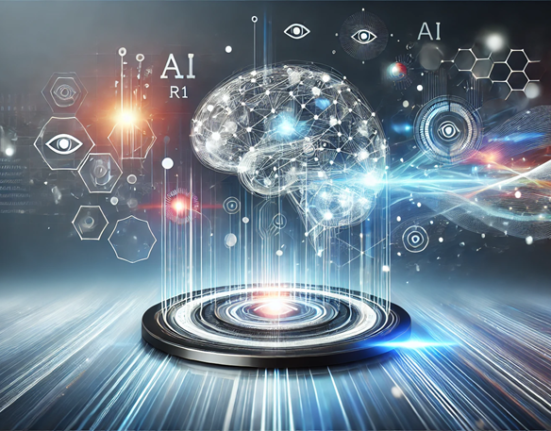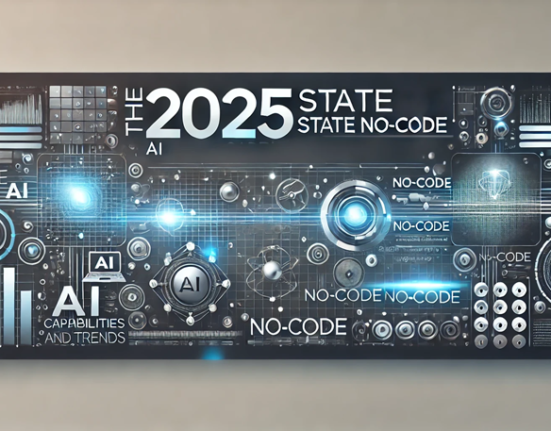Generative AI is rapidly evolving, transforming industries, and redefining human-machine collaboration. In 2025, AI is no longer just a futuristic concept—it’s an integral part of business operations, creative industries, and everyday life. From AI-generated content to advanced multimodal models, staying ahead of the latest trends is essential for businesses and professionals alike.
In this article, we break down the top trends in Generative AI for 2025 and explore how they are reshaping industries worldwide.
1. AI-Generated Content Will Dominate Digital Marketing
How Generative AI is Changing Content Creation
Generative AI tools like ChatGPT, Bard, and Jasper are revolutionizing content marketing by producing blog posts, ad copy, video scripts, and more in seconds.
🔹 What’s new in 2025?
- AI-powered hyper-personalized content that adapts to user preferences in real-time.
- Automated SEO-driven articles optimized for Google rankings.
- AI-generated social media posts that increase engagement and conversions.
📌 Why It Matters: Brands can create more content, faster, without compromising quality—boosting visibility and engagement.
2. Multimodal AI: The Next Big Leap in Machine Learning
What Is Multimodal AI and Why Is It Important?
Multimodal AI models process multiple types of data—text, images, audio, and video—simultaneously. OpenAI’s GPT-4 Turbo, Google’s Gemini, and Meta’s LLaMA models are leading this transformation.
🔹 Key Developments in 2025:
- AI assistants can analyze images and generate context-aware responses.
- Text-to-video AI tools like Sora AI are making content creation seamless.
- AI-powered voice cloning and audio synthesis are enhancing customer support and digital storytelling.
📌 Why It Matters: Businesses can leverage multimodal AI for richer interactions, enhanced automation, and innovative user experiences.
3. AI in Software Development: Code Generation and Automation
How Generative AI is Disrupting Software Engineering
Generative AI is rapidly transforming the software development landscape, making coding more efficient and accessible.
🔹 Emerging Trends in 2025:
- AI-assisted coding tools like GitHub Copilot and Amazon CodeWhisperer accelerate development.
- Low-code/no-code AI platforms allow non-developers to build applications.
- AI-driven bug detection and debugging are reducing software vulnerabilities.
📌 Why It Matters: Faster software deployment, fewer errors, and enhanced productivity in software engineering.
4. AI-Powered Virtual Assistants Are Becoming Smarter
The Evolution of AI Assistants in 2025
AI-powered virtual assistants are now more human-like, offering advanced automation for businesses and personal productivity.
🔹 Key Innovations:
- Context-aware AI assistants that remember past interactions.
- AI-powered customer service bots that offer real-time, personalized solutions.
- Voice AI and emotional intelligence integration to improve human-AI interactions.
📌 Why It Matters: AI assistants are boosting efficiency in business operations and improving customer experiences.
5. AI in Creativity: Art, Music, and Video Generation
How Generative AI is Reshaping Creative Industries
From digital art to AI-generated music, generative AI is pushing creative boundaries like never before.
🔹 Trending AI Creative Tools:
- DALL-E, MidJourney, and Stable Diffusion for AI-generated images.
- Sora AI for text-to-video creation, making professional-grade content accessible to all.
- AI music composition tools generating tracks in various genres.
📌 Why It Matters: AI is democratizing creativity, allowing businesses and individuals to create stunning visuals and audio content without expertise.
6. Ethical AI and Regulation Will Take Center Stage
Why AI Governance is Critical in 2025
As AI grows more powerful, ethical concerns and regulatory frameworks are becoming a top priority.
🔹 AI Policy Trends:
- Governments are implementing AI transparency laws.
- AI watermarking is ensuring content authenticity to combat misinformation.
- Businesses are adopting responsible AI frameworks to ensure fairness and accountability.
📌 Why It Matters: Companies must align with global AI regulations to avoid legal risks and ensure ethical AI adoption.
7. AI-Powered Personalization in E-Commerce and Healthcare
How Generative AI is Transforming Customer Experiences
Generative AI is making online shopping and healthcare more personalized and predictive.
🔹 Innovations in 2025:
- AI-driven product recommendations tailored to user behavior.
- Healthcare AI models providing virtual diagnoses and treatment plans.
- AI-powered chatbots assisting in telemedicine and e-commerce inquiries.
📌 Why It Matters: AI is enhancing customer experiences, improving healthcare efficiency, and driving business growth.
The Future of Generative AI: What Lies Ahead?
As AI technology advances, generative AI will continue to evolve—offering even more powerful automation, creative possibilities, and business applications.
Key Takeaways:
✅ AI-generated content will dominate marketing and social media.
✅ Multimodal AI models will create more intuitive AI assistants.
✅ Generative AI will revolutionize coding, healthcare, and e-commerce.
✅ Ethical AI adoption will shape the future of AI governance.
2025 is the year of AI-driven transformation. Are you ready?
Final Thoughts
Generative AI is not just a trend—it’s a revolution shaping industries worldwide. Staying ahead of AI advancements is crucial for businesses, professionals, and creators.
Whether you’re a marketer, developer, or business leader, integrating AI-powered tools into your workflow can drive efficiency, creativity, and innovation.

